
Sustainability Report
Year 2021-22
With a glorious decade of ESG inclusion in its strategy and operations, tall commitments in all the key aspects of Sustainability, and laudable achievements, Galaxy Surfactants chooses to scale further heights in Corporate Responsibility. 2030, being a crucial year in both the national and global agenda of sustainable development, the company has embarked upon its Mission 2030 to serve its customer with value-added products, manufactured responsibly. In this report, we are sharing our further aspirations of business success in all aspects of the business as “Mission 2030”.
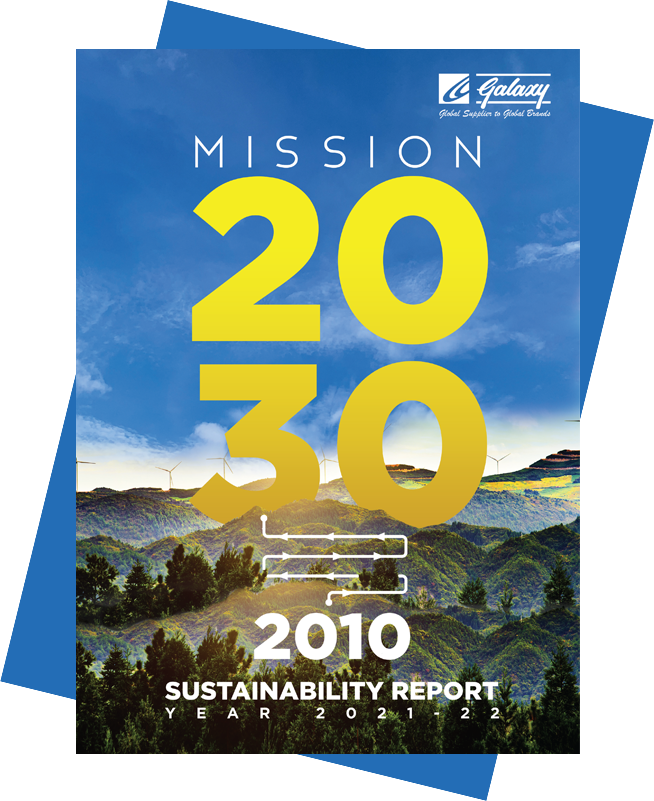
It is our pleasure to present the 11th Sustainability Report in which we share Galaxy’s sustainability performance. This report has been prepared in accordance with the GRI Standards: Core option. The report covers sustainability data and information for the identified material topics considering the reporting boundary as the operations in India, Egypt and USA. Our material topics have been identified through survey and stakeholder engagement process.
We invite you to share views and feedback at [email protected]
- NET ZERO ,Carbon Offset, Circular economy ,Green Products ,Water Stewardship and Lifecycle assessment provide an opportunity to make significant positive impact
- Galaxy’s MISSION 2030 is a focused approach on climate change ,Circular economy and Water Stewardship.
- As a famous Phrase goes by , Earth belong to those who are living ,but it also belongs to those who are dead and those who are yet unborn. We must appreciate the differences and try our best to see the future
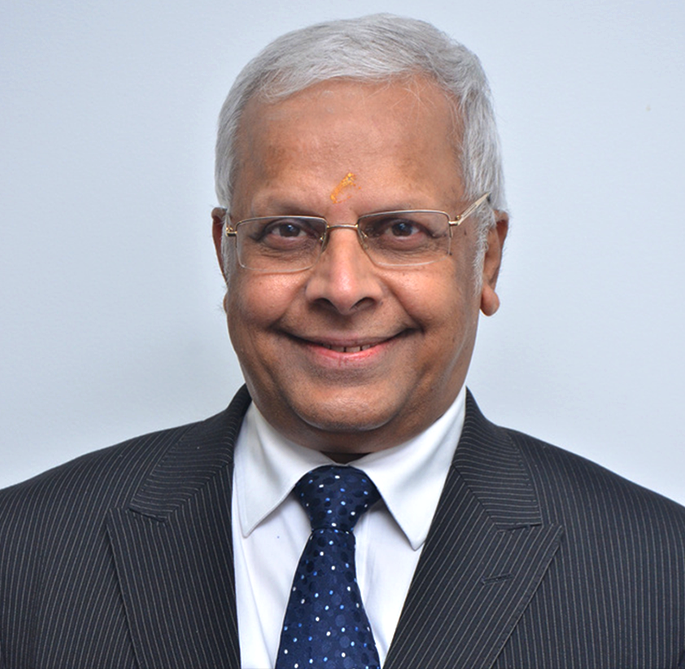

Financial
Consolidated revenue from operations : INR 3686 Cr.
PAT: INR 263 Cr.

Market presence
Global market presence: 80+ countries

Social and Environment
Total water conserved beyond fence (Cumulative): 745.8 million Liters
Total beneficiaries through CSR activities: 5.66 lakhs
CSR spend: INR 4.69Cr

Innovation Capital
Patents Granted 3
New products launched 2

Human Capital
Talent Nurturing: 17.36
hr./employee (GSL)

Miscellaneous
- Taloja Plant conferred with CII Excellent Energy Efficient Unit Award and CII GreenCo Star Performer Award (Silver Level)
- Indian Chemical Council’s Acharya P.C Ray Award for development of indigenous technology for Its Product – GalGaurd LipoG
- Awarded the Great place to work® Certification for the 3rd Time
- Top 30 in Business World India’s Most Sustainable Companies
- Cumulative Trees planted – 60948
I am pleased to share our 10th Sustainability Report for Financial Year 2020-21 which shows how we have embedded the principles of sustainable growth in business practices over a decade.
While the World may define 2020-21 as the Year of the Pandemic & Disruptions, at Galaxy we would like to define the year as the “Year of Resilience” – The Year which tested every aspect of our Business; be it our People, Operations, Supply Chain, or Demand but despite the challenges that persisted throughout the year; the performance has been excellent.
2020-21 year can be summarized as 5Ps; Pandemic & Pressures countered by Persevering People and Persistent Partnerships which ensured we deliver a near Perfect Performance!
Having said that, I would take this opportunity to thank every Galaxite who has made this possible. Starting with our Front Line Yodhas- our Operators on the Floor, Operations and Supply Chain Team Members, Business Members who held fort when everything around them appeared hazy and turbulent. Our support staff , who within days adopted a completely new lifestyle of working from home, balancing both, the needs of their families as well as that of Galaxy and finally our Administration and CSR Teams, I have the teams that ensured that we continue functioning as well as helping our society throughout the year.
But Ladies and Gentlemen, as they say, every battle has a price to pay and while this battle against the pandemic continues, I would like to take this opportunity to remember and pay my tributes to the 8 Galaxites, who lost their lives battling.
Losing a family member is not easy and while no amount of monetary compensation can make up for human lives, Galaxy has taken steps to support their families. We have introduced the ‘COVID-Family Care’ Policy for all GSL employees to provide economic stability and financial security to the families of the employees who succumbed to COVID-19. A small step to ensure their families do not face any further disruptions or challenges on account of loss of income and continue leading their lives honorably. In this, the families will receive the monthly committed payments till the notional date of retirement, and can also avail medical facilities along with educational support for their children. Throughout the Pandemic, Galaxy has ensured that not a single rupee is spent by our people or their families for any COVID-19 related treatment. The entire cost has been borne by us. While the battle rages on, this is a battle which we all need to win, and Galaxy will leave no stone unturned to come out victorious.
Ladies and Gentlemen, the year 202021 has reignited the importance of ‘sustainable growth’; growth that is consistent, balanced, and replicable over the years. But sustainable growth is not only about financial growth, it also includes the qualitative factors that ensure consistency, balance and replicability of performance over cycles. These qualitative factors impart the inherent strength and robustness to the business and enable an organization to adapt and respond to disruptions with determination, resolve and confidence.
It is my belief, qualitative factors like Organizational Ethos, Strength and Depth of Stakeholder Relationships developed over years, Experience acquired over multiple cycles, Succession Planning, Talent Retention, and Organizational Responsiveness, that impart the required resilience to an organization. While these qualitative factors have always been around, it is only during times like these do we realize the criticality and strength imparted by them.
As we enter the next decade of sustainability, I personally expect businesses to become lot more proactive and make giant strides in the areas of Environment, Society and Governance.
As a responsible citizen of the society, it is upon us to ensure a better tomorrow for our future generations. At Galaxy, multiple initiatives have been taken with respect to Water Conservation, Energy Management, Waste, and GHG emission reductions. When it comes to our Society, our focus areas primarily include – Provision of Food and Water Security, ensuring Health, Hygiene and Education and creating avenues to empower as well as enable a better living for the deprived sections. Demonstrating the highest standards of Corporate Governance, Ethical Practices and Succession Planning is something we have practiced since inception.
Qualitative Factors combined with ESG related initiatives have ensured sustainable growth for Galaxy in the last decade; we see the same continuing in the next decade.
Ladies and Gentlemen, at Galaxy, we believe, the next decade will be the decade of Innovation, Sustainability and Digitization. While Sustainability and Innovation have been part of our core strategy for more than a decade now, the year 2020-21 saw us making strides in the digital arena. Galaxy has not only successfully adapted to the Work from Home culture, but also enhanced its digital marketing presence through various channels. Right from Customer interactions to multiple product application promotion campaigns to new product launches, we are steadily and surely stepping up in the digital arena. The coming year would see Galaxy enhancing its digital presence and reach further.
While adaptability to the digital age was all about equipping ourselves for the future, building on the sustainability and innovation journey which began years ago, today, has become a pre-cursor for survival. In relation to that, Galaxy
1. Launched GalEcosafe - Specially designed Fatty Alcohol Ether Sulphates with ultra-low 1,4-Dioxane levels to comply with the new US regulations aimed at protecting the environment.
2. Commercialised Galguard LipoG: Non-toxic, biodegradable, nature-derived and safe preservative for Beauty and Personal Care segments.
These products shall form part of our environmental friendly new age products basket.
To celebrate the same, we organized the Galaxy of Sustenance event which not only highlighted the significant work done by Galaxy in the field of Sustainability but also saw us taking up new targets for 2030.
Galaxy is committed to Science Based Targets initiative (SBTi) for setting a highly ambitious target to transition to low carbon economy.
Ladies and Gentlemen, it is the efforts of the last 10 years that have started to yield fruits now slowly but steadily:
In 2020-21, 1. Galaxy Surfactants, Taloja plant was conferred with the CII Green Company rating (GreenCo - Silver level).
2. Achieved consistent progress in Carbon Disclosure Project (CDP) 2020 with Score of Management Level ‘B’ in CDP- Climate Change compared to global average of ‘C’, Management Level ‘B-’, in CDP-Water compared to global average of ‘B’ and Leadership level, ‘A-’ in Supplier Engagement compared to global average of ‘C’.
3. Won the GOLD medal 2020, awarded by EcoVadis.
4. M3 Tarapur Site has been awarded as a Winner for the Kaizen in the Category – Waste Elimination. Received Certificate of Appreciation from IMC Chambers of Commerce and Industry for becoming the first IMC Certificate of Origin (COO) Member to release the online digitally signed Certificate of Origin (COO).
5. Galaxy Jhagadia Manufacturing plant got accredited with EFfCI GMP certification.
Recently, as you would have seen on our Social Media platforms, Galaxy’s Water Shed Management eff orts – across drought locations in India, was recognized by the CII as an excellent eff ort towards ecosystem restoration.
To conclude, what began as a dream in 1980, today, has slowly but steadily unfolded into a unique one-of-a-kind organization. Unique, as globally you will not find any organization which is completely integrated, right from its business to its operations, from people to innovations, sustainability goals to quality and manufacturing setups, for catering exclusively to the Home and Personal Care space.
As we enter our fifth decade, we at Galaxy Surfactants strongly believe, if the last four decades marked our learning phase, the coming four will mark our growth phase and the best is yet to come.
Thank You Ladies and Gentlemen. Stay Safe – Stay Healthy.
Yours Sincerely,
U. Shekhar,
Managing Director

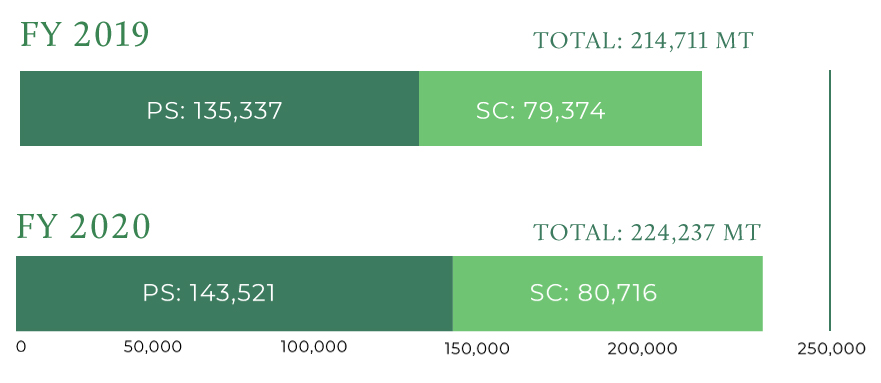
PS = Performance Surfactants
SC = Speciality Chemicals

From 2019, Galaxy is committed to including differently-abled members of society in our world and integrating them into the business. We have committed ourselves to including 40 differently-abled members within Galaxy by 2022.

Galaxy has embraced TCFD recommendations with a commitment to evaluate, manage and report its climate-related risks. The assessment aims to conduct climate-related risk assessment across Galaxy’s operations, identify the principal risks – physical and transitional, prioritise and estimate the financial impacts, thereby assessing Galaxy's resilience upon transitioning to a low carbon economy.
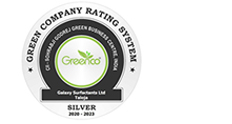
CII GreenCo is the “first of its kind in the world” holistic framework that evaluates companies on the environmental friendliness of their activities using the life cycle approach. Galaxy has adopted the GreenCo rating system at its Taloja plant, India to assess its operations’ environmental performance adopting a procedure-based approach.
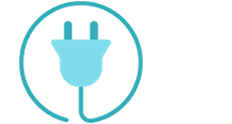
Galaxy has adopted structured way of energy monitoring and control through EnMS 50001:2018. The certification was awarded to Taloja plant, India after successful audit conducted by BSI, a certification body.
Galaxy identifies the key stakeholders based on whether the activity of the company affects the people or group of people.The stakeholder are divided into 2 groups on the basis of following 2 attributes
We have identified the key Stakeholders for Galaxy based on the following attributes:
Dependency-Stakeholders who are directly dependent on the organisation's activities, products, and services or on whom the organization is dependent to operate.
Responsibility-Stakeholders to whom the organization has legal, commercial, operational, or moral/ethical responsibilities The key stakeholders of Galaxy Surfactants are:
Customers
Investors
Government
and regulatory
bodies
Suppliers and
vendors
Transporters
Employees
(including
contract
employees)
Communities
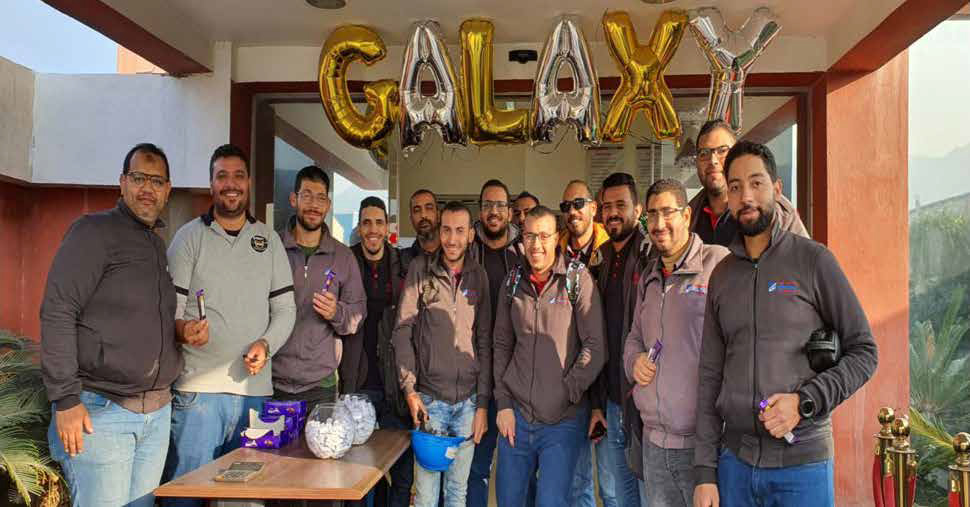
| Stakeholder Group | Types of engagement | Frequency of engagement (annually / half yearly / quarterly / others) | Key topics and concerns raised during such engagement | |
|---|---|---|---|---|
| 1 | Customers |
|
Quarterly |
|
| 2 | Investors |
|
Annually (AGM)Quarterly (event-based investor conferences) one to one Investor Meetings |
|
| 3 | Government and regulatory bodies | Statutory and Legal Compliance filings | Annually and on need based | Environmental and Social Compliance |
| 4 | Suppliers and vendors |
|
Annual |
|
| 5 | Transporter |
|
Annual |
|
| 6 | Employees (Employee and contract employees) |
|
Quarterly |
|
| 71 | Community |
|
Quarterly |
|
In FY21-22 our marketing team held a podcast series to increase the awareness of Sustainability, not only in the organization but to all the external stakeholders. The podcast series was titled “Report of trust”.
The main agenda of the podcast series was to understand the importance of Reporting Sustainability Parameters and how this can build trust among consumers and customers.
There were five episodes with eminent personality sharing their views and knowledge.
Galaxy focuses on the integration of the most important ESG issues into strategy and management through the process of materiality. The materiality exercise, carried out in FY 2020-21, helped prioritise the key issues which are significant to Galaxy as well as to the stakeholders.
In February 2020, Galaxy conducted a survey with all the key stakeholders of the Company to understand the ESG issues that are important to them. These issues were also evaluated for their relevance to the business and then Materiality Matrix was constructed. The issues were referred from the global frameworks like GRI, SASB, and UN SDGs to ensure that all the ESG issues of global importance are included in our materiality study.
As part of this process, we examine the risks and opportunities facing our business in the immediate and long term and score them based on their level of importance.
This involves drawing on external insight from a broad range of stakeholders such as customers, employees, nongovernmental organizations (NGOs), and suppliers as well as the United Nations Sustainable Development Goals and also involves engaging internal experts from across the business to understand how the issues may affect our operational or financial performance such as our reputation or growth.
Prioritizing issues through this process enables us to focus our efforts on effectively managing impacts as well as stakeholder relationships.
There are no significant changes in the list of materiality issues and their boundaries as compared to the previous year.
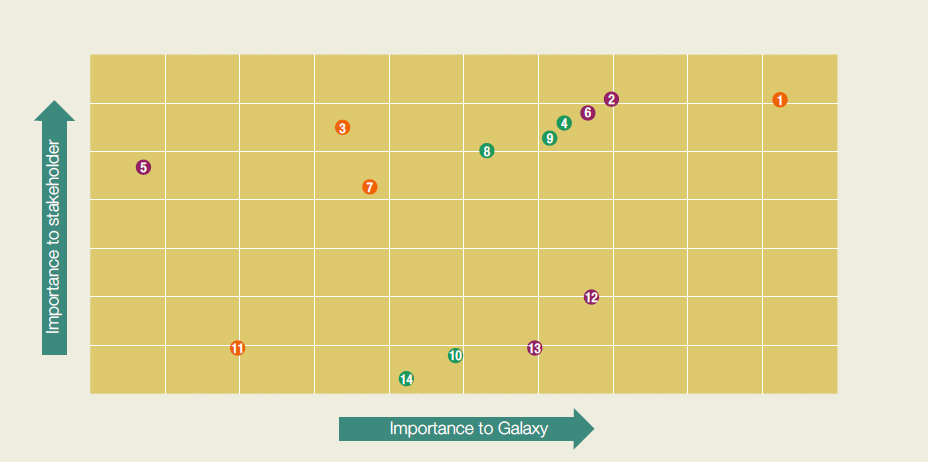
E= Environmental | S =Social | G = Governance
GRI 201, GRI 206, SDG 8
Galaxy continuously aims to deliver above-average returns to its investors. The company’s vision includes delighting the customers and to be a partner of choice. Thus, financial growth is one of the pillars of inclusivity and sustainable growth. The boundary for the reporting period includes the company’s manufacturing units and Head office in India and excludes wholly and non-wholly owned subsidiaries.
Growth and the performance of the company is the shared responsibility of all employees and the Board of Directors. The CFO and COO (Executive Directors) look after the implementation and monitoring of the financial and operational management of the Company with the help of respective Process (Departmental) heads. The Company has adopted Corporate Balanced Score Card (BSC). One of the perspectives of BSC is financial pillar which includes various key performance indicators (KPI). Some of the KPIs are Sales growth, EBITDA/MT, Net cash generation, and ROI. Balanced score card helps the company to set targets, measure, monitor, and ensure that the completion of targets takes place within the timeline.
The following are the financial results of the company during the reporting period:
GRI 201-1
| Direct economic value generated and distributed | Without considering Donations | With considering donations | ||||||||||
|---|---|---|---|---|---|---|---|---|---|---|---|---|
| Consolidated | Standalone | Consolidated | Standalone | |||||||||
| Particulars |
|
|
|
|
||||||||
| Total Revenues from Operations |
|
|
|
|
||||||||
| Other Income |
|
|
|
|
||||||||
| Total Income |
|
|
|
|
||||||||
| Operating Expenses (excluding employee benefit expenses) |
|
|
|
|
||||||||
| Employee Benefit Expenses |
|
|
|
|
||||||||
| Interest and Finance charges |
|
|
|
|
||||||||
| Government as taxes (Income tax) |
|
|
|
|
||||||||
| Dividends |
|
|
|
|
||||||||
| Donations/CSR expenses |
|
|
|
|
||||||||
| Economic value retained |
|
|
|
|
||||||||
*All figures in INR Crores
GRI 201-2
Climate change poses unpredictable risk and impacts on businesses. Extensive study and peer reviews were done to derive the list of climate change risks faced by chemical sector. A set of climate change risks that can impact Galaxy Surfactants across its entire value chain were identified. These risks were then further grouped into the following categories:




The details of the risks are presented in the table below:
| Climate Change Risk | Risk Type | Scenario Considered | Cost Heads Impacted |
|---|---|---|---|
| Variations in climate regulations across countries affect competitiveness in domestic and international markets | Market and Finance | Highly climate conscious companies can be helpful in a newly climate regulatory environment and vice versa | Sales revenue from international operations |
| Water scarcity | Physical | Business risks due to water scarcity include decreased water supply for business activities, higher water costs, operational disruptions and associated financial losses. | Water Charges |
| Impact on Human resource | Physical | Employees not able to get to work; decrease in productivity; health and safety risk; labor availability | Wages and Salary |
| Climate change related regulations | Legal and Policy | Violations related to stringent legal requirements lead to risk associated with litigation. Examples: Carbon Taxation, Increase stringent norms for emissions to air, land and water, Energy efficiency regulations, Impact on Local communities. | Environmental Expenditures |
| Product Certification and Traceability | Technology | Disclosure of Product Climate Performance through certification schemes and chain of custody (traceability) reports | 2% of Revenue Cost |
Efforts to mitigate and adapt to climate change produce opportunities for organizations; for example, through resource efficiency and cost savings, the adoption of low-emission energy sources, the development of new products and services, access to new markets, and building resilience along the supply chain
GRI 401-1, GRI 402, GRI 403, SDG 3, SDG 8, NGRBC Principle 3
GRI 401-1
| Location/Demography | Gender | Age Wise | ||||
|---|---|---|---|---|---|---|
| M | F | Age < 30 | Age(30 - 50) | Age > 50 | Total | |
| India | 274 | 44 | 230 | 87 | 1 | 318 |
| Egypt | 154 | 6 | 129 | 29 | 2 | 160 |
Galaxy has hired new employees worldwide in line with its growing ambitions. In India, Galaxy hired 318 employees, out of whom 230 were of less than thirty years of age. The detailed demography of the new hires are given in the above table.
Our focused initiatives and commitment for the safety and well-being of people has resulted in more than 43% reduction in LTIFR, zero fatalities, and significant decrease in incidences globally across all sites during the year!
Galaxy has a SHE policy that has been communicated to all its employees and stakeholders. Galaxy commits itself to:
- Elimination of occupational hazards and risks involved at workplace for prevention of injury and ill health.
- Elimination of unsafe acts and unsafe conditions.
The Safety and Health related performance indicators of Galaxy Surfactants are shown below. This data includes contract employees also:
| Indicator | 2021-22 | 2020-21 | 2019-20 | 2018-19 |
|---|---|---|---|---|
| Fatalities | 0 | 3 | 0 | 0 |
| Reportable Incident | 3 | 7 | 0 | 0 |
| Lost Time Injury Frequency Rate - LTIFR | 0.52 | 1.11* | 0 | 0 |
| BBS Observations | 3279196 | 1522179 | 614871 | 24905 |
| Training Manhours | 28483 | 18131 | 15065 | 34546 |
| Expenses of SHE Process (Rs. In Cr.) | 14.23 | 9.82 | 8.65 | 6.33 |
*This data has been corrected from last year
Galaxy Surfactants is a signatory to the Responsible Care Global Charter by the International Council of Chemical Associations since March 2015.
As a signatory to the Responsible Care Global Charter, the Company commits to safeguarding People and the Environment by continuously improving environmental, health, and safety performance; security of facilities, processes, and technologies; and by driving continuous improvement in chemical product safety and stewardship throughout the supply chain.
GRI 403-1
Galaxy is certified to ISO 45001 which helps set up systems and procedures in the company to provide a safe and healthy workplace and promote occupational health and safety, eliminate hazards, and minimize OHS risks.
- IGC-NEBOHS Certification: 3 employees were certified IGC-NEBOHS -International certification in Occupation Safety and Health
- Responsible Care Certification Renewal: ICC Auditors audited site and granted to use Responsible Care Logo for 3 years from Feb 21 to Jan 24 Safety and Health
GRI 403-3
Galaxy takes the responsibility to ensure that their employees’ health is well-taken care of. The company has guidelines in place for the promotion of good health, well-being, and prevention of diseases.
Six-monthly health check-ups have been arranged for all company employees and contract employees. Employees having acute problems like Blood pressure, Diabetes, etc. are counselled by Factory medical officer (FMO). Periodic training is conducted by FMO on various health topics such as Healthy lifestyle, Precaution for Blood Pressure, Precautions for Diabetics, etc.
Certified and trained first aiders are available round the clock to handle any type of emergency. They undergo refresher training periodically
GRI 403-5
The Company regularly provides training to all employees, including contract workers on topics like behavioural safety, Fire Safety, SCBA, MSDS, EMS-OHS standards, Responsible Care etc. Employees carry out Risk assessment along with qualified SHE personnel and various emergency drills are also conducted to ensure employee engagement. As a good practice in health and safety, preliminary health check-up and induction training through STK (Safety Training Kiosk) is conducted for all those including visitors, drivers, contractors, and new employees’ recruits.
The OHS related training at our various sites is shown in the graph below:
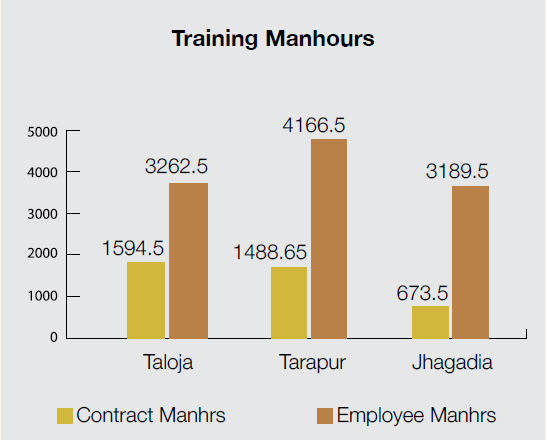
GRI 402
Harmonious relations between employees are a crucial element for Sustainability. Galaxy places immense value in the skill and competence of its employees and takes focused initiatives to maintain high motivation, empowerment, and engagement levels.
Each employee has access to Galaxy's human rights policy, which has been set up. Our organization undertakes compliance audits to guarantee that child or forced labour is not employed within the boundaries. Display boards, handbooks, and other kinds of communication are used to effectively communicate to employees all labour laws and other policies relevant to workplace ethics. These cover regional and federal laws and regulations, as well as policies like sexual harassment and whistle-blower policies. Employees are encouraged to offer feedback through a ‘Speak Up’ box for raising their concerns.
In India, as required under the Sexual Harassment of Women at Workplace (Prevention, Prohibition and Redressal) Act, 2013, Galaxy has constituted an IC (Internal Committee). The policies can be accessed at
Sexual harassment policy: https://www.galaxysurfactants.com/pdf/policies/Sexual- Harassment-at-Workplace.pdf?v=1.0 Hum
Human rights Policy: https://www.galaxysurfactants.com/pdf/policies/Human- Rights-Policy.pdf
GRI 413, SDG 1, 2, 3, 4,5,10, NGRBC Principle 8
Inception of CSR activities even before it became a mandate and growing with inclusion of communities since then!
Galaxy has consistently spent more than the mandated CSR budget and positively impacted over 5.66 Lakh lives!
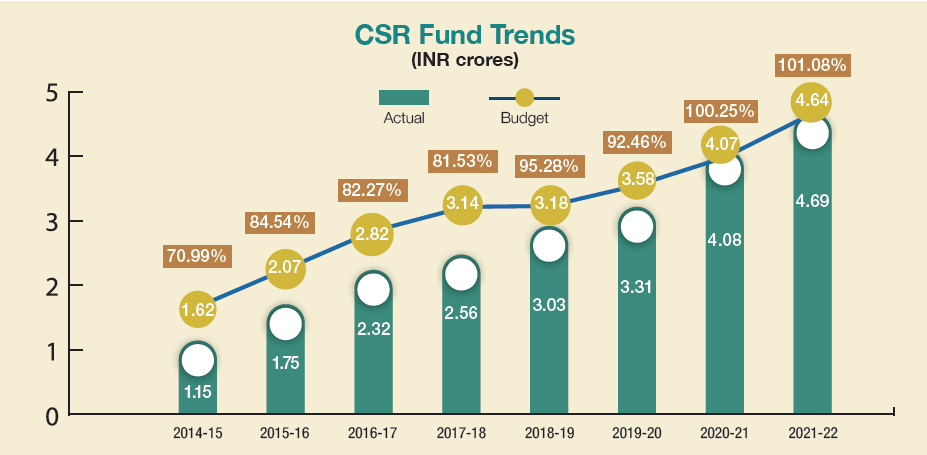
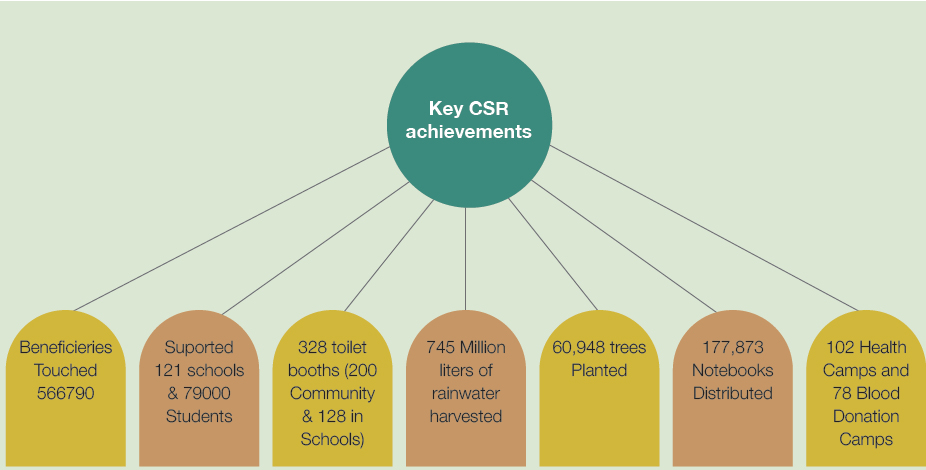




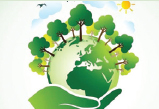

GRI -413-1
Based on both formal and informal engagements with the communities, the company has identified the following focus areas as CSR priorities:
- Aarogya Vardheeni (Healthcare, Hygiene and Preventive Healthcare)
- Gyan Sanjeevani (Education)
- Samajeek Utthaan (Community and Rural Development)
- Paryavaran Suraksha (Environment Protection)
- Stree Unnati (Women Empowerment)
- Aapda Rahat (Calamity Relief)
The CSR Steering Council at Galaxy communicates regularly with the community and solicits feedback prior to the concept and execution of a project. Need Assessment and Due Diligence of the beneficiary is conducted at the start of the project and feedback for assessing the impact of the project is conducted after the project.
Navigators or champions of the project from the Steering Council are in continuous touch with the beneficiary or the implementation partner before the start of the project.
The performance measures for measuring the progress and impact of the project are finalized at the start of any project. The beneficiary or the implementation partner shares the status report with these performance measures on a quarterly basis, highlighting the progress during implementation and the outcome of the project after completion of the project. The status of the project is also verified through a site visit by the project champions of Galaxy.
During 2020-21, Galaxy focused all its resources on managing the COVID -19 pandemic in the communities. This was the year when 100% of the CSR budget was utilized for the first time. In 2021-22, Galaxy continued its support to fight against Covid-19 by donating 10 ICU beds to hospitals, along with distribution of 1685 liters of sanitizer, 16,564 liters of liquid handwash, 1700 PPE kits, 7300 masks and other articles to 72,970 Covid Warriors and 57,584 community people, Government Agencies, NGOs, community, and hospitals
GRI -413-2
About 40% of CSR initiatives are undertaken in and around the locations where Galaxy has its operations and presence. The geographies that have been touched on through CSR projects are:
- Taloja - Villages and schools near the plant
- Tarapur- Villages and schools near the Boisar plant, villages, schools, ashrams at Dahanu and rainwater harvesting projects in Jawhar and Mokhada tribal belts
- Jhagadia- Villages and schools near the plant, adolescent empowerment project in 5 Villages of Bharuch
- Navi Mumbai - Slums and Community from Thane to Raigad
- Chhattisgarh - 57 tribal villages of Bilaspur District; hand hygiene project, malnourishment eradication project and Tuberculosis prevention project
- Tamil Nadu - Support to various Gaushalas and rainwater harvesting project
- Relief Material to various states including Nepal



Cumulatively till date, Galaxy has planted 60,948 Trees. Galaxy initiated its First Miyawaki Plantation at TEPS, Tarapur MIDC, Palghar planting around 9500 saplings using the Miyawaki technique.
(cumulative)
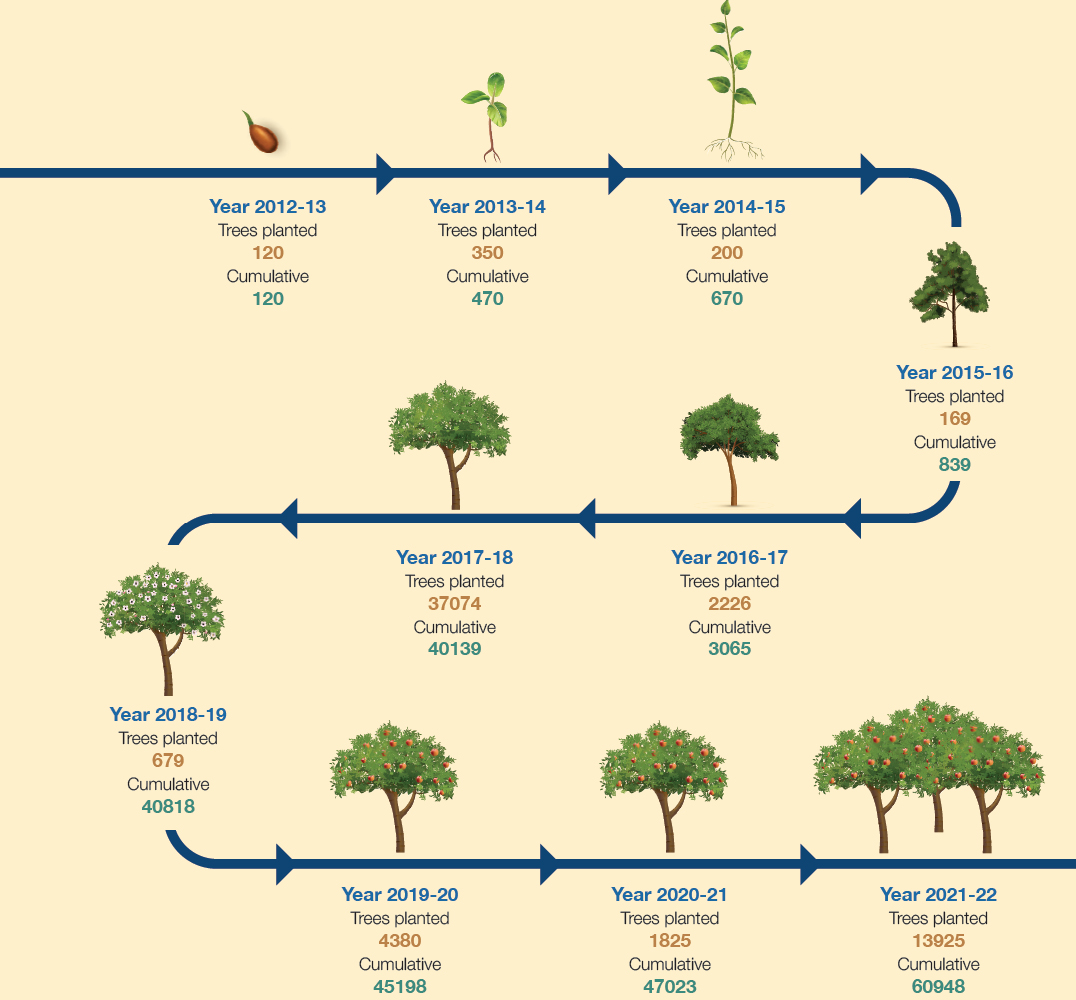
✓ Galaxy has committed to achieving 100% waste circularity by 2030
✓ Since May 2017, Galaxy has become zero liquid discharge at all manufacturing sites in India
GRI 305, SDGs 7, 12, 13, NGRBC Principle 6
GHG emission accounting and reduction is an integral part of the company’s long-term agenda towards climate change mitigation.
Galaxy Surfactant’s, GHG Emissions accounting, and reporting is reported every year since FY 2011-12. The key lever is the implementation of energy conservation projects. GHG emissions are consolidated on an operational control basis with the base year of 2012-13. Gases considered for GHG emissions include CO2, N2O, CH4, and HFC. The emissions are calculated based on ISO 14064-1:2006 standards and published emission factors from IPCC guidelines (Sixth Assessment Report). Data for fuel and electricity is collected through sites that measure consumption based on metering and maintained records.
Members of the Energy cell and Sustainability cell meet regularly to review Energy performance and are guided by Energy and Sustainability policy. Galaxy has implemented ISO 50001:2018 Energy Management System at the Taloja Manufacturing unit with the aim to reduce energy consumption and emissions. The Certification was awarded to Galaxy after a successful Audit conducted by BSI.
We are committed to the Science Based Target Initiative in alignment with the Paris Agreement goal to limit the global temperature rise to 1.5/2 degrees Celsius. Currently, we are in the target validation process.
Galaxy started Carbon Disclosure Project as an initiative for building a sustainable economy by measuring and acting on our environmental impact. Since then, Galaxy have been continuously participating in the disclosure. With time our scores increased significantly reflecting the improvements taken at Galaxy.
| Company name | 2021 Supplier Engagement Rating |
|---|---|
| Galaxy Surfactants Ltd. | A |
Galaxy’s 2021 SER is as follows:
Galaxy’s group score 2021:
| Company name | Climate Change | Water Security | Forest |
|---|---|---|---|
| Galaxy Surfactants Ltd. | B | B- | C |
| Avg. Performance Chemicals | B | B | B |
| Avg. Performance Asia | B- | B | C |
| Global Avg. Performance | B- | B | B- |
A and A-: Leadership Level | B and B-: Management Level | C and C-: Awareness Level | D and –: Disclosure Level
GRI 305-1
19157 tons CO2 eq.
Note: Gases included in the calculation are CO2, CH4, N2O and HFCs and have been calculated as per the IPCC Guidelines, Sixth Assessment Report (AR6- 100 year) using the operational control method
GRI 305-2
| Sl no | Location | Country | Emissions (tonnes CO2 eq.) |
|---|---|---|---|
| 1 | Taloja | India | 12945 |
| 2 | Tarapur | India | 3012 |
| 3 | Jhagadia | India | 9542 |
| 4 | TTC and sales warehouses | India | 515 |
| 5 | Suez | Egypt | 7141 |
| 6 | Derry | USA | 157 |
| Total | 33312 | ||
GRI 305-3
| Category | Emissions (tonnes CO2 eq.)# |
|---|---|
| Purchased goods and services | 95928 |
| Capital Goods | 8465.3 |
| *Fuel and other energy related activities (not included in scope 1 and Scope 2) | 4.7 |
| Upstream transportation and Distribution | 3027 |
| Downstream transportation and distribution | 26041 |
| Business Travel | 48 |
| Employee Commuting | 1063 |
#Reporting of other indirect (scope 3) GHG emissions is by considering partial scope
*Purchased electricity consumption of rented warehouse
GRI 305-4
| Scope 1 GHG emission (t CO2e) | 19157 |
| Scope 2 GHG emission (t CO2e) | 33312 |
| GHG intensity (t CO2e/MT) | 0.15 |

Energy conservation themes and GHG reduction projects executed in FY 2021-22 have resulted in improved energy efficiency. As a result, for our Indian Operations, total reduction in GHG emission in scope 1 and 2 is 3521.70 tCO2e.
The key initiatives are shown below:
| Category of Project | Project Description | Total CO2 eq. savings in tonnes |
|---|---|---|
| Energy Recovery | Installation of waste heat recovery boiler | 138.07 |
| Low carbon emission installation | Energy conservation using LED Fixtures | 61.61 |
| Process Optimization | Cooling tower fan optimization | 45.36 |
| Renewable energy | Partial Power Purchase through Group Captive | 1566.39 |
| Process Optimization | Screw blower in ETP | 24.80 |
| Energy Savings | Energy Savings in Chiller Section | 117.27 |
GRI 302, SDGs 7,13, NGRBC Principle 6
Energy conservation continues to be our priority. We focus on reducing the energy intensity of our products. We implemented different schemes for energy conservation for various processes and components in our manufacturing facilities to further improve energy efficiency.
The company has systematically allocated financial, technological, and human resources to reduce the energy intensity of projects and processes.
The energy mix at galaxy includes power and fuel from both non-renewable and renewable sources. Energy intensity calculation includes furnace oil, coal, light diesel oil, high-speed diesel oil, natural gas, grid electricity, and renewable energy. This ratio considers energy consumed within the organisation and the denominator as production volume in MT.
The key energy conservation initiatives during the reporting period are:
| Sl. No. | Initiatives |
|---|---|
| 1 | Energy conservation by using LED fixtures |
| 2 | Cooling tower fan optimization by using PID controller |
| 3 | Installation of Screw blower in ETP |
| 4 | Energy savings in Formulation plant by reducing batch cycle time |
| 5 | Power reduction by reduction of changeover time |
These initiatives have resulted in 45% reduction in the energy intensity in the past decade as shown in the graph below:
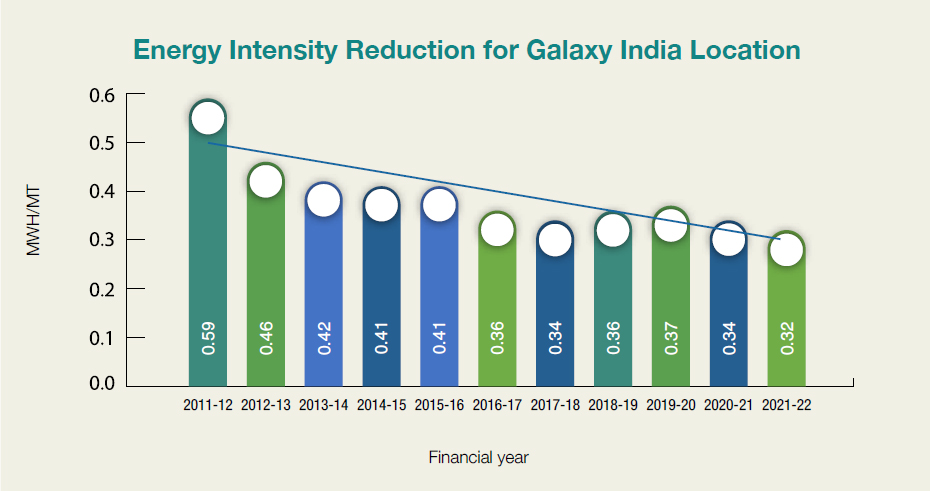
This significant reduction in specific energy consumption was visible primarily due to the utilisation of Renewable Energy sources. Presently the company has ~ 5.95 MWp of Solar energy in its energy mix accounting for 24% of its RE share (Taloja).
GRI 306, SDG 12, NGRBC 6
Galaxy focuses on waste elimination, recycling, and optimum utilization of resources. The fundamental objective is to maximize reuse and recycling so that minimum land space is occupied for disposal and at the same time natural resources and energy are saved.
We measure and monitor waste for all our manufacturing facilities. We are continually improving our waste monitoring mechanisms. Wastes are considered Hazardous or Non- Hazardous as per the definition of national legislation. We encourage our employees, and operators to share innovative ideas and look forward to alternative options for reducing, recycling, and re-using waste.
Project: Molten Stearic Acid in ISO Tankers as an alternative to Solid Stearic Acid
Objective: To reduce waste created due to paper bags of stearic acid
Actual Work at site: Along with promoting green sourcing and vendor evaluation, Galaxy also tries to improve its processes continuously. Till FY 2016-17, our stearic acid was being sourced in solid form in paper bags. We realized that there was a potential of reducing the usage of paper bags in packaging. Our sourcing team decided to undertake a joint project with Quality Assurance team in procuring Molten Stearic Acid in ISO tankers from FY 2017-18.
As a result of constant efforts in planning and management, we not only reduced our waste but it has eventually reduced our batch cycle time.
Total packaging waste was reduced by 21.6 tons from FY 2017-18 to FY 2021-22.
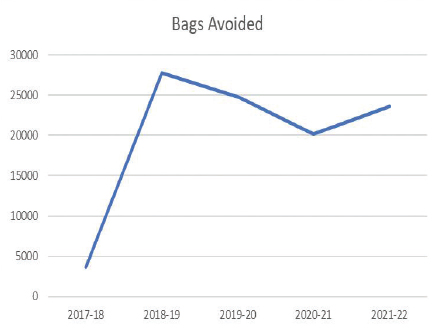
In FY 2021-22, total weight of waste generated in metric tons, 5733.56 MT and the waste diverted is 2,076.45 MT. For each category of waste generated, total waste recovered through recycling, re-using or other recovery operations (in metric tonnes) is shown in the table below:
GRI 303, SDG 6, 13, NGRBC 6
- Reduction of water withdrawal by 30% of indirect water consumption per MT production in India and Egypt by FY 2025-26 over FY 2020-21.
- Continue the status of having ZLD units in India and achieve ZLD units at the Egypt location.
- Become Net Water Positive at India-Plant level by FY 2023-24.
- Implementation of ISO 46001:2019 by 2025-26 as Water Efficiency Management would bring a system in place for better managing water use and optimizing water demand.
- Galaxy has achieved a 60.3% reduction in India for its water intensity figures over FY 2011-12.
- The manufacturing site in Egypt has achieved a 30% reduction in water intensity considering the baseline of FY 2014-15.
- Since May 2017, Galaxy has become zero liquid discharge at all manufacturing sites in India, along with necessary consent from the Pollution Control Boards. Galaxy Surfactants Ltd. has been certified 1.4X Water Positive by independent verification by DNV Business Assurance India Private Limited
- Galaxy has cumulatively harvested 415 million litres of water through multiple projects through recycling, condensate recovery, and steam recovery and has incorporated several water stress adaptation projects.
- Galaxy Surfactants obtained a water balance index of 1.40, a rare achievement by a Chemical company.

Galaxy has adopted an innovation funnel model comprising various stages wherein ideas are screened as they progress through various developmental stages before the commercialisation of the product. The primary focus is bringing in new ingredients that fit into a variety of existing and emerging categories including UV absorbers, functional macromolecules, non-toxic preservatives, mild surfactants for gentle cleansing, and blends.
The key emphasis of Galaxy's innovation efforts is always on sustainability. Galaxy uses natural ingredients and adheres to the 12 Principles of Green Chemistry for product development to ensure that they are fundamentally safe and sustainable. Galaxy uses green technology i.e., products that can be produced sustainably in an environmentally friendly manner. For both customers and end users, Galaxy offers a full value proposition. As a result, over the decade, optimization of Galaxy’s product mix has facilitated better earnings growth.
Galaxy over the decade has channelized its efforts into building a sustainable product portfolio. Mild Surfactants and Non-Toxic Preservatives portfolio developed well ahead of its time offers products that align with today’s sustainable trends and are based on the Green Chemistry Platform which follows 12 principles of sustainable chemistry. After growing in the existing area of surfactants, Galaxy decided to further push boundaries and entered the proteins and actives business by acquiring TRI-K.
A versatile value-adding specialty additive, which improves the attributes of personal care products and their applications. It is a multifunctional ingredient in the formulation, which supports viscosity build-up, emulsification, foam boosting, stabilization, and enhanced skin feel and can also be used as a secondary surfactant. This COSMOS-certified product is environmentally friendly and is 100% derived from natural ingredients.
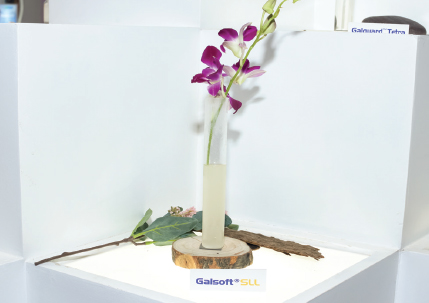
Galaxy Hearth® Mix Pods is a ready mix concentrate for the preparation of Laundry Pods or Capsules. Powered by plant-based surfactants, the concoction prepared is carefully crafted to deliver adequate wetting, excellent cleansing, and detergency. Galaxy Hearth® Mix Pods cleansing composition shows better detergency against powder, liquid, and even commercially available laundry pods.
to Galaxy (since 2000)
In FY 2021-22




